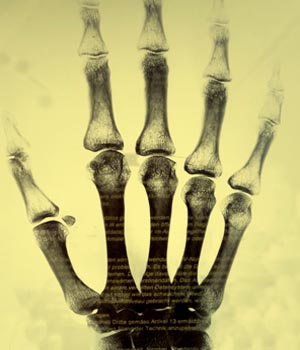The Electronic Patient File
Opportunities and Risks in the Age of Digitalization
How we think about the use of data is affected by the increasing digitalization today and our interactions with large quantities of data in our daily lives. Data concerning health and genes are exceedingly sensitive and personal.
Most radiographs aren't being captured on film anymore, but produced and collected digitally. As digitalization progresses, new possibilities arise in terms of how we can save and use data. One consequence of this development is the federal statute regarding electronic patient files (EPDG), which came into effect on 15 April 2017. The law stipulates under which conditions data concerning one's health, radiographs, and the results of medical examinations make their way into a patient's electronic records and can there be processed. But what does the introduction of this law mean for patients? What decisions do they have to make? Which responsibilities and rights do they have, and which do the doctors and hospitals have? What information do we want to share with our general practicioner, with our dermatologist, or with our psychiatrist? And will this lead to 'transparent patients'?
The electronic patient file raises questions about how we deal with data concerning our own health, and it poses significant challenges for the entire Swiss healthcare system. What's more, it leads to several multifaceted juridical questions, for example regarding patients' privacy and their right to make their own choices regarding their data. The opportunities and risks involved in the implementation of the electronic patient file in Switzerland will be one of the aspects examined in the research project ‘Current Developments in Digitalization and Their Effect on Medical and Health Law’.
Isabel Baur is Managing Director of the Competence Center Medicine – Ethics – Rights Helvetia (MERH) at the University of Zurich. She completed her Ph.D. in personalized medicine More
Dr. Brigitte Tag is Dean of the Legal Institute at the University of Zurich and President of the Management Committee at the Competence Center Medicine – Ethics – Rights Helvetia (MERH) More
Related contributions





